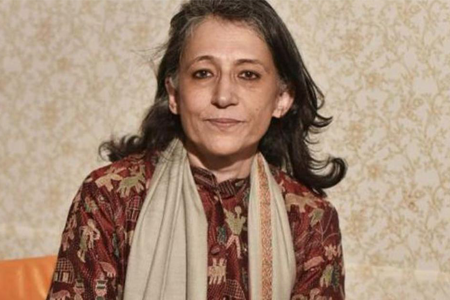Amid a strong buzz that the Army is manipulating the elections, the professor of history predicts an Imran Khan-led coalition will win.
Published in Scroll.in on Jul 25, 2018
 The Pakistan Army has been accused of trying to manipulate elections to the National Assembly and four provincial Assemblies, to be held on Wednesday, to script a result that would help it continue to dominate the country’s politics. The scale of manipulation is shocking, not the act itself. After all, Pakistan has had three long spells of direct Army rule. Even during periods of civilian rule, the generals have kept politicians on a tight leash.
The Pakistan Army has been accused of trying to manipulate elections to the National Assembly and four provincial Assemblies, to be held on Wednesday, to script a result that would help it continue to dominate the country’s politics. The scale of manipulation is shocking, not the act itself. After all, Pakistan has had three long spells of direct Army rule. Even during periods of civilian rule, the generals have kept politicians on a tight leash.
The history of democracy in Pakistan raises the question: why is it vulnerable to Army rule, directly or indirectly, in sharp contrast to India? To analyse why democracy’s fate has been so different in India and Pakistan, Scroll.in spoke with Pakistani-American historian Ayesha Jalal, who is professor of history at Tufts University.
Jalal’s credentials to compare the different trajectories the two democracies have taken are impeccable, having spent much of her life studying this subject. It is evident from her works such as The State of Martial Rule: The Origins of Pakistan’s Political Economy of Defenceand Democracy and Authoritarianism in South Asia: A Comparative and Historical Perspective. Her famous The Sole Spokesman: Jinnah, the Muslim League and the Demand for Pakistan deepened and complicated our understanding of Partition.
This interview with Jalal was conducted over email and phone. Excerpts:
Ever since President Pervez Musharraf resigned in 2008, the Pakistan Army has refrained from ruling directly, preferring to control politics from behind the scene. Is this change in strategy a consequence of the 2010 amendment of the Constitution, which made abrogation, subversion or suspension of the Constitution high treason and denied the judiciary the right to decide on it?
Constitutional provisions have not deterred the Pakistan Army from intervening in the past. It remains the final arbiter in Pakistan’s destiny, whether or not it wields power directly. In recent decades, partly because of the uneven results of military rule and also deepening polarisation, the Army high command has preferred to influence decision-making from outside the established political system instead of assuming state power. Dekhiye [look], when you come to power directly, you are also responsible. What could be better than to have all the powers and no responsibility?
Pakistan is polarised between whom?
Political polarisation is not just between political parties, it also involves elements the Army has used, over the years, to support its regional policies with other neighbours. We know that in this election, there are several religious extremist groups whose members are contesting. [For instance, the Milli Muslim League, which is the political party of the extremist group Lashkar-e-Taiba, and the Tehreek Labaik Ya Rasool Allah party.] Who is behind their mainstreaming [into politics]?
So the 2010 amendment is a weak weapon in the arsenal of the political class in its long battle for supremacy with the Army.
Power in Pakistan does not flow from any constitutional amendment but from the actual functioning balance between elected and non-elected institutions. The amendment of 2010 represents an aspiration that is still to be actualised. The Army’s domination of other institutions in Pakistan is relational.
What do you mean by relational?
What is power? It is relative to other people’s power. The Pakistan Army’s strength lies in the weakness of other institutions. The story of Pakistan and the dominance of the military should also explain why other institutions are weak.
Why, unlike in India, has the Army come to play such an important role in Pakistan?
The reasons are historical and structural. When Pakistan was created, it got a financial structure that was 17.5% of undivided India, and a military that was one-third of undivided India. [In other words, the areas that made up Pakistan contributed just 17.5% of India’s tax revenue before 1947 and inherited about one-third of undivided India’s military.] Pakistan could never square that [gap].
On top of it, with Kashmir and all the problems with India, the Army emerged dominant because it was able to hook up with the international capitalist system, America in particular. They also got on to various security alliances [formed because of Cold War politics post-World War II] that tipped the balance against politicians.
READ THE REST OF THE INTERVIEW HERE
